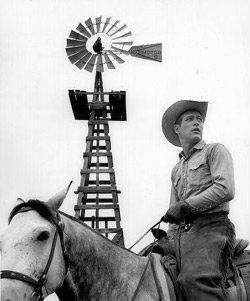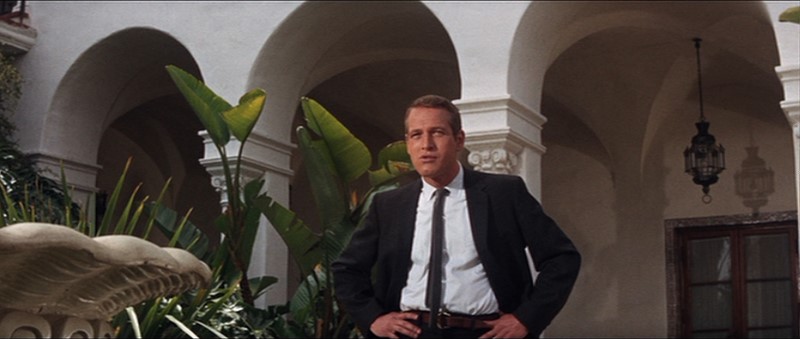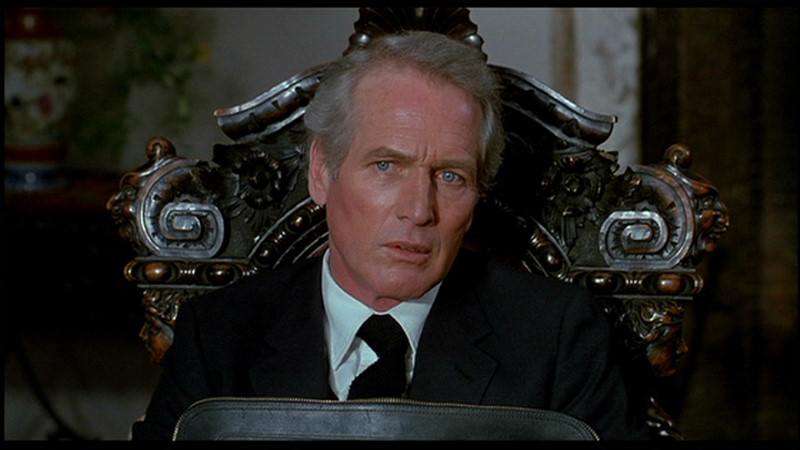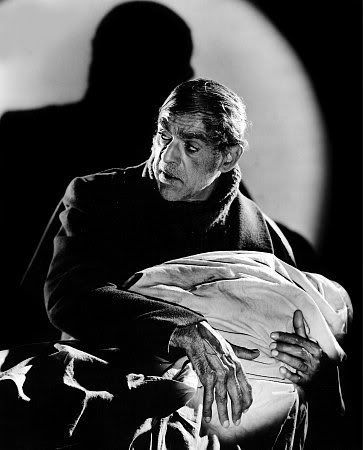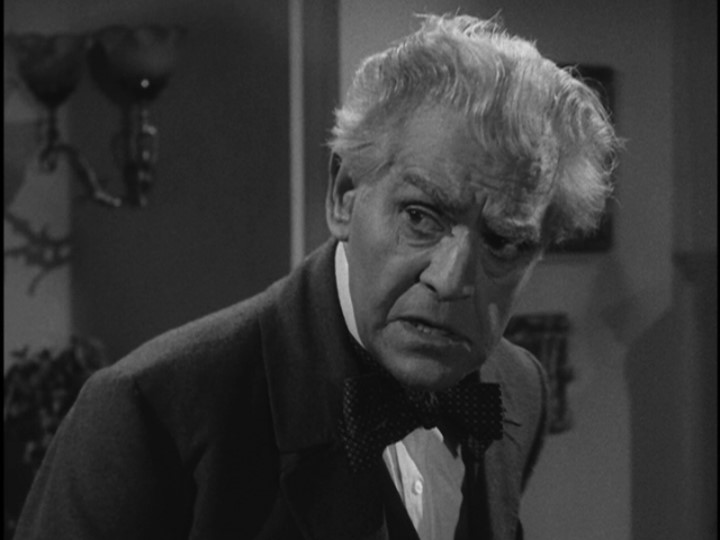Tuesday, September 30, 2008
Horror Month: A Prologue
I say "unfortunately" because while I acknowledge that it would be nice if I could have some over-arching theme, and in fact I made -- and am even still making -- some attempt to group these stories and novels in a manner that will connect them in more specific ways than the simple fact that they all belong to the same genre, that's going to be nearly impossible, I think. This is due entirely to the fact that I haven't read any of these stories and novels before, and so I don't know what their themes are, or how they historically fit into the horror genre, or anything like that. I can read a bunch of stories written during the same basic time period (which I have done for my first group of selections), or that are part of the same horror sub-genre (for instance, I have a novel and anthology of stories that revolve around movies), or I can pair authors, one of whom has influenced the other. And I'm going to do all of that, but it'll still be a crap-shoot, because I won't really know what I'm getting into from story to story, novel to novel.
So, this might turn out to read more like a journal of my experience, and might even devolve into a rant wherein I moan about how this was a really horrible idea. Because, really, horror -- as much as I sometimes love it -- is a terribly frustrating genre. Its full artistic potential is almost never met; writers are too often influenced by bad movies they grew up with, and labor under the belief that ridiculously graphic violence is the same thing as horror.
I don't mean to sound too negative, though. After all, I did my best to pick novels and stories from my collection that I thought I had a better than fair chance of enjoying (though I did pick some less promising stuff in order to write a whole "state of the genre" thing). But I have a love-hate relationship to this stuff, and I don't really know how this is going to work out for me. So, fingers crossed, everybody, because I begin tomorrow.
Oh, and if anybody can come up with a title for this whole business, let me know, because I got nothin'.
Monday, September 29, 2008
Faces of Horror 2

Let’s say it once and for all: Poe and Lovecraft—not to mention a Bruno Schulz or a Franz Kafka—were what the world at large would consider extremely disturbed individuals. And most people who are that disturbed are not able to create works of fiction. These and other names I could mention are people who are just on the cusp of total psychological derangement. Sometimes they cross over and fall into the province of “outsider artists.” That’s where the future development of horror fiction lies—in the next person who is almost too emotionally and psychologically damaged to live in the world but not too damaged to produce fiction.
-Thomas Ligotti
This is the best picture of Ligotti available on the internet. Sorry...
Saturday, September 27, 2008
Friday, September 26, 2008
Faces of Horror
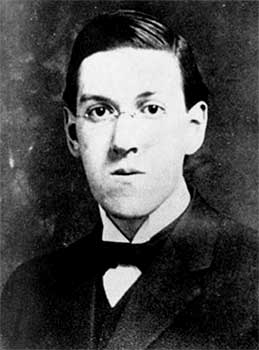 Any magazine-cover hack can splash paint around wildly and call it a nightmare or a Witches' Sabbath or a portrait of the devil, but only a great painter can make such a thing really scare or ring true. That's because only a real artist knows the actual anatomy of the terrible or the physiology of fear -- the exact sort of lines and proportions that connect up with latent instincts or hereditary memories of fright, and the proper colour contrasts and lighting effects to stir the dormant sense of strangeness.
Any magazine-cover hack can splash paint around wildly and call it a nightmare or a Witches' Sabbath or a portrait of the devil, but only a great painter can make such a thing really scare or ring true. That's because only a real artist knows the actual anatomy of the terrible or the physiology of fear -- the exact sort of lines and proportions that connect up with latent instincts or hereditary memories of fright, and the proper colour contrasts and lighting effects to stir the dormant sense of strangeness.H. P. Lovecraft
"Pickman's Model"
Since most of my free time over the next few days will be taken up with the actual reading of stories and novel(s) in preparation for October, until the 1st I'll be putting up this series of pictures of, and quotes from, the kind of writers I'll be talking about for the next month(!).
Wednesday, September 24, 2008
Queue Reviews! Rick's Right, That DOES Rhyme!
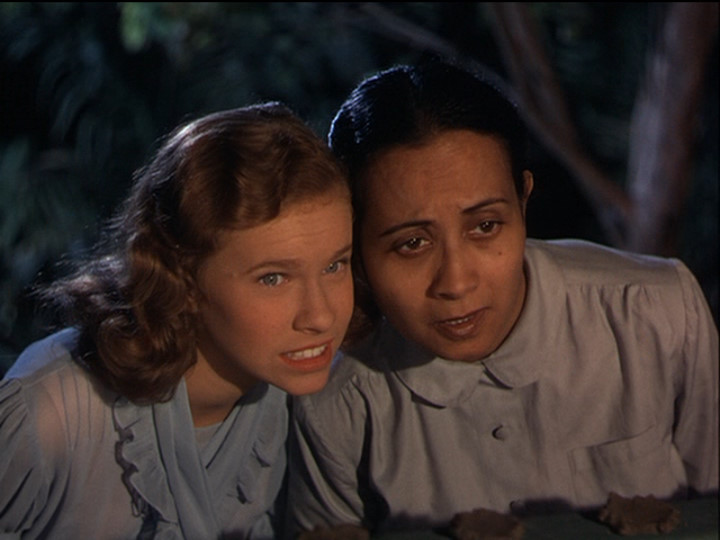
The River - d. Jean Renoir (1951) - Is it me? I was looking forward to this film -- not least, I admit, because Wes Anderson cited it as a major influence on his marvelous The Darjeeling Limited -- but as I watched it I just...sat there. It looked beautiful, of course. And I realized that the lovely Adrienne Corri, who plays Valerie, was the same woman from that scene in A Clockwork Orange. And Arthur Shields looks an awful lot like my doctor. But it's...it's a bit limp, isn't it? I mean, as drama? I feel horrible even saying that, but Rick and Marilyn have assured me that it's not just me (although their objections to the film are slightly different from mine). The film just seemed to plod along, offering a flourish here and there (like Melanie's dance), lightly pulling the characters apart until tragedy and rebirth could bring them back together. Fine, but...

My Favorite Year - d. Richard Benjamin (1982) - I can't imagine I'll get into too much hot water for being dismissive of Richard Benjamin's ouvre, but this film is held up as something of a comedy classic. And I can see why, as it must represent the end of an era, to a degree, in that I can't remember the last time a comedy of this classic type was released. Add to that a terrific performance from Peter O'Toole, and, well, no, because I didn't laugh very much. Look, early on the film, Bill Macy, the head writer of a Your Show of Shows-style comedy program, comes into the writer's room. He says hello to two other writers, played by Jessica Harper and Basil Hoffman. He asks a question, and Basil Hoffman whispers into Jessica Harper's ear, and Harper gives Macy Hoffman's answer. Macy says something along the lines of "What's wrong with you, anyhow?" Now, this is the first time we've seen these characters, but it's not the first time they've seen each other, and this quirk of Hoffman's is not otherwise presented as something he developed overnight. So Macy knew about it. The filmmakers just wanted to highlight it for the audience, and remind us that they realized that Hoffman's behavior was unusual and hilarious. And what I call that is sloppy. This is still better than Laughter on the 23rd Floor, however.
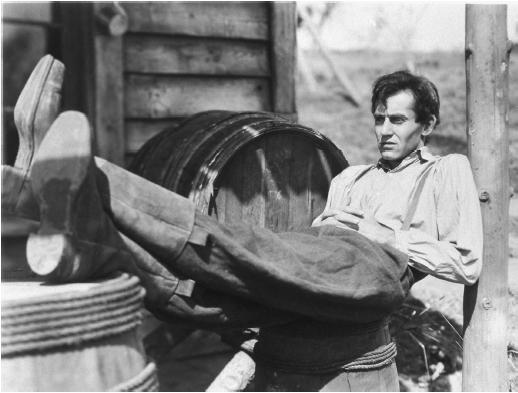
Young Mr. Lincoln - d. John Ford (1939) - Okay, how do I get out of this one? Well, no, I liked this film. If you could ever say about an actor that they were born to play Abraham Lincoln, you could say it about Henry Fonda (not Liam Neeson). He's effortless here, and Ford offers many beautiful touches, my favorite being the shot, after the killing that will end up driving the film, of a clearing at night, a body lying on the ground, and gunsmoke slowly drifting above it. But a lot of excuses have to be made to onself while watching the courtroom scenes, entertaining as they are. Does it matter that they're not remotely realistic? Probably not. This film plays out like a folktale anyway (I was reminded of William Dieterle's The Devil and Daniel Webster) and seen from that angle it works like gangbusters. But really, what's up with Abraham Lincoln cheating at tug-of-war??
------------------------------------------------------------------------------------
NEXT IN THE QUEUE: Kill Baby...Kill!, Salesman, and My Darling Clementine
Monday, September 22, 2008
The Kind of Face You Hate - Where Your Shocktobers Are Guaranteed to Be Spooktacular!
The deal is this: before I buckled down and started this blog, I decided that, in order to earn my keep as a member of the wonderful Palimpsest book forums, I would do something fairly blog-like and, for the month of October, read only horror fiction -- a genre I seem to love and hate in equal measure -- and chronicle that experience for my fellow Palimpsest members. I'm still going to do that, but now, in order to kill two monsters with one item effective in killing said monsters, I will be posting my insights and delightfully irreverant musings here, as well. And if all goes well, or even if all goes badly, it might help me work up a big enough head of steam to finish off my State of Fear essay.
I have a lot of fiction, stories and novels, picked out for this, and there's no way that I can read all of it in one month, but if you want some idea of what's in store, I can tell you that I know I'll be reading the following: horror fiction written by people you wouldn't normally associate with the genre (this will mostly be short fiction, though I do have a novel picked out); some translated, non-English horror fiction (mainly because my own experience of this branch of horror is weak); writers I think are the best the genre has produced (like Thomas Ligotti and Robert Aickman); classic writers of the genre (Poe, Lovecraft, M. R. James, maybe even Henry James); and a fair number of writers who I've never read before. I can get into more specifics in the comments, if anyone cares. Otherwise, the contents of the syllabus will be a delightful surprise.
So, there you go. My blog is booked clean through next month. Which means there will be a marked decrease in movie posts in that time. Sorry about that, for those of you who will feel that absence like a knife in your heart.
PS - BOO!!!!!!
Saturday, September 20, 2008
Queue Reviews! Or, Possibly, a Less Crappy Title!
 Keir Dullea is ridiculously miscast as De Sade, a man whose adult drift into perversion and, well, sadism was all instigated when he was but an innocent youth, whose uncle (John Huston, less badly miscast) exposed him to cruel and painful sexual humiliation. And there you have it. Now just imagine how the rest of a movie with such a premise might play out, but, you know, fracture it. Also, every so often put a red filter on your lens. I would also add that you shouldn't forget about tits, but I hardly think I need to point that out.
Keir Dullea is ridiculously miscast as De Sade, a man whose adult drift into perversion and, well, sadism was all instigated when he was but an innocent youth, whose uncle (John Huston, less badly miscast) exposed him to cruel and painful sexual humiliation. And there you have it. Now just imagine how the rest of a movie with such a premise might play out, but, you know, fracture it. Also, every so often put a red filter on your lens. I would also add that you shouldn't forget about tits, but I hardly think I need to point that out.Thursday, September 18, 2008
Wednesday, September 17, 2008
12
 1. La Dolce Vita - This film is right at the top of my list of movies I feel like a dick for not having seen yet. The fact that I haven't has to do with the fact that my early, limited experience with Fellini was not especially pleasurable. I started with Fellini Satyricon -- a choice I believe even the most aggresive Fellini fan would agree was a bad one -- and then went on to Amacord. I actually did like that one well enough, but there are certain elements of Italian cinema, and Fellini films in particular, that I don't really get along with: the grotesqueness, the broad humor, the general bigness of it all. But later, much later, I went ahead and watched Nights of Cabiria, and loved it. And I realized that when someone uses the word "Fellini-esque", they're talking about something I'm probably not going to care for, but that doesn't describe all of Fellini's own films. And I'm thinking that La Dolce Vita falls more in line with Nights of Cabiria. So up in the queue it goes.
1. La Dolce Vita - This film is right at the top of my list of movies I feel like a dick for not having seen yet. The fact that I haven't has to do with the fact that my early, limited experience with Fellini was not especially pleasurable. I started with Fellini Satyricon -- a choice I believe even the most aggresive Fellini fan would agree was a bad one -- and then went on to Amacord. I actually did like that one well enough, but there are certain elements of Italian cinema, and Fellini films in particular, that I don't really get along with: the grotesqueness, the broad humor, the general bigness of it all. But later, much later, I went ahead and watched Nights of Cabiria, and loved it. And I realized that when someone uses the word "Fellini-esque", they're talking about something I'm probably not going to care for, but that doesn't describe all of Fellini's own films. And I'm thinking that La Dolce Vita falls more in line with Nights of Cabiria. So up in the queue it goes.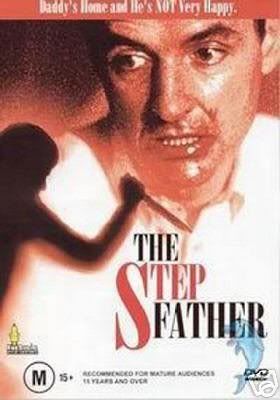 2. The Stepfather - This was written by Donald E. Westlake. And it stars Terry O'Quinn. And look, O'Quinn's face is all bloody. So make with the region 1 DVD, you sonsabitches!
2. The Stepfather - This was written by Donald E. Westlake. And it stars Terry O'Quinn. And look, O'Quinn's face is all bloody. So make with the region 1 DVD, you sonsabitches! 3. Babe: Pig in the City - I know, this movie is supposed to be better than anything, and kids should see it so you don't have to teach them about death yourself or whatever, but I'm gonna be honest with you: when it comes to seeing animals killed and/or abused in films, I'm a humongous pussy. I do not like it. I'm not saying I'm taking a moral stand, I just get really sad when I see a dog or monkey or what have you being treated badly. I won't even watch that episode of Futurama about Frye's dog. But, I know: this movie's great. So I'll see it. One day.
3. Babe: Pig in the City - I know, this movie is supposed to be better than anything, and kids should see it so you don't have to teach them about death yourself or whatever, but I'm gonna be honest with you: when it comes to seeing animals killed and/or abused in films, I'm a humongous pussy. I do not like it. I'm not saying I'm taking a moral stand, I just get really sad when I see a dog or monkey or what have you being treated badly. I won't even watch that episode of Futurama about Frye's dog. But, I know: this movie's great. So I'll see it. One day.
5. Satantango - Because why the hell not? For one thing, Satantango is the film equivalent of a book like Moby-Dick or Ulysses: one of the reasons you (I) watch it is so that you can tell people you've seen it. I have to admit that I have seen Bela Tarr's Werckmeister Harmonies, and I never once clicked with it. But I wanted to. Not for bragging rights this time, but because Tarr is clearly all on his own, making films that he needs to make, with no thought about any other factors. His movies are the way they are because he made them, and if you don't like it then he'll catch you in the funny papers. At the moment, I don't know what Tarr is up to, I'm not tuned into his wavelength, but I'm willing to try to understand, even if I never really like his work. And I recently heard a quote attributed to the playwright Alan Bennett that I think applies here, at least in part. He said that there should be a sign hung outside the National Gallery that reads: "You don't have to like everything." Amen. But you should be willing to give everything a chance.
 6. Salesman - Why isn't this available on Netflix? The Criterion disc is still in print, so what's the deal? I remember seeing clips of this in a college class I took on documentary films, and I was immediately absorbed, because this was as close to a time machine as I was ever going to get. Quite frankly, the ultimate point of this film, its argument (I assume it has one) is not as interesting to me as simply seeing these people from another time living and working and talking, free of any (or as little as possible) outside filmmaker influence. I've heard that the appeal of certain of Warhol's films is similar, but Warhol, from what I can tell, preferred it when nothing much was happening in front of his camera, and the people he hung with were affected going in, so I'll take the Maysles, thank you.
6. Salesman - Why isn't this available on Netflix? The Criterion disc is still in print, so what's the deal? I remember seeing clips of this in a college class I took on documentary films, and I was immediately absorbed, because this was as close to a time machine as I was ever going to get. Quite frankly, the ultimate point of this film, its argument (I assume it has one) is not as interesting to me as simply seeing these people from another time living and working and talking, free of any (or as little as possible) outside filmmaker influence. I've heard that the appeal of certain of Warhol's films is similar, but Warhol, from what I can tell, preferred it when nothing much was happening in front of his camera, and the people he hung with were affected going in, so I'll take the Maysles, thank you. 7. Gesualdo: Death for Five Voices - I first heard about this in the early days of my obsession with Werner Herzog. The way I heard it, on one of those alt.net movie groups, was that this documentary is about a relatively obscure classical composer who did something along these lines: killed his family, and then wrote music about it. I'm pretty sure that's not quite correct, but I'm also pretty sure that it's not that far off, either. I have no idea what watching this film will be like, but I have to see it. And I'm pretty sure it's available, too.
7. Gesualdo: Death for Five Voices - I first heard about this in the early days of my obsession with Werner Herzog. The way I heard it, on one of those alt.net movie groups, was that this documentary is about a relatively obscure classical composer who did something along these lines: killed his family, and then wrote music about it. I'm pretty sure that's not quite correct, but I'm also pretty sure that it's not that far off, either. I have no idea what watching this film will be like, but I have to see it. And I'm pretty sure it's available, too.
8. The 47 Ronin - You might say that, in the case of Kenji Mizoguchi's The 47 Ronin, I ran out of excuses a long time ago. And you'd be right. No, it's not readily available on DVD, but IFC aired both parts of the film several months ago, and I've had the sucker lingering in my DVR ever since. So no more excuses. Get on it, you douche. (PS - I'm the douche in that last sentence.)

9. The 1000 Eyes of Dr. Mabuse - Fritz Lang's last film, it was also his first film about the diabolical Dr. Mabuse since 1933's brilliant and bizarre The Testament of Dr. Mabuse. I have no idea what this movie's about, apart from that it obviously has something to do with some deeply unsettling plot by Dr. Mabuse, but look at that picture above: creepy! What's up with that dude's eyes, anyway? So, yeah, a DVD of this would be much appreciated.
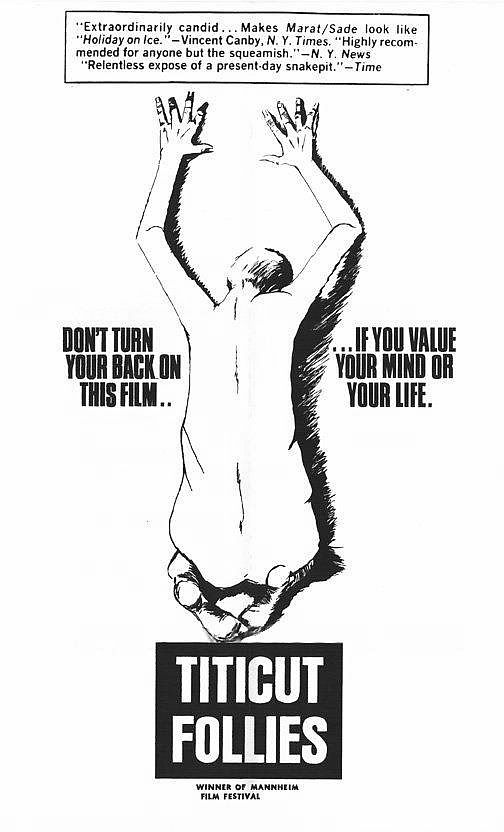 10. Titicut Follies - A bit obvious, maybe? Anyhow, as you all know, this movie is decidedly not available -- I think my chances of seeing it fall somewhere between the possibility of my seeing The Other Side of the Wind and The Day the Clown Cried -- and even if I did see it, afterwards I may wish I hadn't. But, as with Salesman, the pull of getting an unfiltered look into a time and a world that no longer exists is impossible to ignore. This movie must be considered one of the most important filmed historical documents of all time, and I want to experience it some day.
10. Titicut Follies - A bit obvious, maybe? Anyhow, as you all know, this movie is decidedly not available -- I think my chances of seeing it fall somewhere between the possibility of my seeing The Other Side of the Wind and The Day the Clown Cried -- and even if I did see it, afterwards I may wish I hadn't. But, as with Salesman, the pull of getting an unfiltered look into a time and a world that no longer exists is impossible to ignore. This movie must be considered one of the most important filmed historical documents of all time, and I want to experience it some day.

11. Last Year at Marienbad - The idea that the true meaning of this supposedly quite eerie Alain Resnais classic is that it has no meaning intrigues me no end. There's not much more I can say about it -- the only Resnais film I've seen thus far is Hiroshima, Mon Amour, and I'm not sure what I think about that one -- but that's why I want to see this. Criterion is bound to release this sooner or later, but as of now there's a region 2 DVD I could plunk down my money for. Anybody know if it's worth it?

12. The Sorcerers - One of the dangers of finally watching a film that you've been wanting to see for years is that, if you're anything like me, the film has a lot of living-up-to-unreasonably-high-expectations to do. I've been let down by many films this way (or you might say that I've actually let down many films), although I'm not going to tell you what those films are, because then I'll probably get flooded with about five comments yelling at me for not liking Hawmps!, or something. But three films that did meet all of my expectations are the original The Wicker Man, Peter Bogdonavich's Targets, and Witchfinder General. The fact that all of those are either horror films or horror film-related is probably not a coincidence. And The Sorcerers is like a mash-up of Targets (in that they both star Boris Karloff) and Witchfinder General (in that they were both made by Michael Reeves). Reeves only directed three films, of which The Sorcerers is his second, before dying at the horribly young age of 25. Witchfinder General, his last film, contains a career-best performance by Vincent Price, and is overall such a nasty, harrowing, unblinking piece of work that, as a horror fan, I can't help but think that the genre lost someone who could have been one of its greatest interpreters. Well, at least we have these three...except for The goddamn Sorcerers, which is still floating around somewhere in DVD limbo, despite MGM's recent release of Witchfinder General. I mean, the thing stars Boris Karloff, for Christ's sake! What the hell is the hold-up!? And why is it that I can't see The Sorcerers, but Reeves's first film, The She-Beast, which not even his fans seem to give much of a shit about, is available on Netflix?? This problem needs to be fixed. Now.
All right, well, that's all she wrote, folks. I hope knowing about twelve movies I want to see but haven't yet has been as elucidating for you as I imagine it must have been. Enjoy your dinners.
------------------------------------------------------------------------------------
Crap, I was supposed to tag someone for this, wasn't I? Pretty much everybody I know in what is known as the "blogtmosphere" has already gotten this thing, however. I am a regular commenter on Glenn Kenny's blog, and even though I'm pretty sure he doesn't know about this blog, I'm going to tag him anyway. Should he take part, I imagine his answers will be pretty interesting.
------------------------------------------------------------------------------------
Forgot to add some important links! Thanks to Movieman at The Dancing Image, as well as the folks at Out 1 and The Lazy Eye Theater, for getting this meme rolling. And sorry to all of them for not linking to them earlier.
Monday, September 15, 2008
David Foster Wallace: Suicide as a Sort of Present

Okay, not the furthest thing from my mind. After all, one of the stories I read last night is called "Suicide as a Sort of Present", and I'm currently in the middle of a long, footnote-heavy story called "The Depressed Person". Your antennae can't help but go up.
But a lot of people seem to be jumping on certain things -- Wallace's 2005 Kenyon University Commencement speech; "Good Old Neon", a story from his collection Oblivion; page 696 of Infinite Jest -- and claiming that they might contain valuable clues. Some people (and I believe I've seen this in the comments of the Onion AV story about Wallace) have said that the deep veins of caring and sympathy that run through his work were some sort of clue, because anyone who cares as much as Wallace did finds it difficult to exist in this world (which seems to imply that those making this point don't care all that much). And I've even seen one or two comments to the effect that Wallace's coverage of the McCain campaign are what drove him to it (classy...and that one I'm sure I read at the Onion AV).
I have to admit that while talking about Wallace with my wife, I fell into this trap myself: "You know, he never wrote another novel after Infinite Jest. Maybe that had something to do..."; "Whatever you think of his writing, he was clearly some sort of genius. Maybe he had a hard time with...". But that's all bullshit, and arrogant into the bargain. His reasons are in no way our business. His death isn't even our business, or at least the details of it aren't. It's news, and I'm not claiming otherwise, but it somehow doesn't seem right that I know the very sad details of the death of David Foster Wallace, a stranger to me.
But enough. How's the actual reading of Wallace going? Better than I would have expected. As with pretty much the rest of the world, I first became aware of David Foster Wallace when his mammoth, forboding slab of a novel Infinite Jest came out in 1996. The flurry of praise that both preceded and followed its release made me instantly curious, and the title indicated that it wouldn't be all gloomy portent: there might be fun to be had in its pages, as well. And damn it, twelve years later I still want to read that son of a bitch, and I'm going to, but for now I'm finding myself fairly engrossed in Wallace's short fiction. The infuriation I felt while reading his David Lynch essay is still there, but so is the fascination. For instance, the first story I read (out of, I admit, completely morbid curiosity) was the aforementioned "Suicide as a Sort of Present". It's short, about four pages, and it tells the story of a woman who is filled with self-loathing due to her belief that she is a failure. When she has a child, a son, she wants him to succeed as she believes she has not. She feels hatred for her son when he doesn't meet her expectations, but never acts on it. She gives him unconditional love, even when his bad behavior starts to become alarming. With great subtlety, the end of the story implies a level of violence far beyond suicide, although that's part of it, and after finishing it I just sat there for a second, slowly realizing what had happened.
The story I'm reading now, "The Depressed Person", is starting to bring Wallace's infuriating qualities to the forefront. Wallace, apparently, had a thing about footnotes, and right now the footnotes to the story (which are really as much a part of the story as the main narrative, and what is the main narrative and what acts as a footnote has become blurry) take up about 4/5ths of the page. This may or may not be intentional, but just the layout, the appearance, of the pages has, at this point, become absurd. Given what I'm becoming to regard (based, I admit, on very little experience) as Wallace's particularly restless kind of genius, I'm guessing that's on purpose.
So, I'm now reading David Foster Wallace, after meaning to for over a decade. I wish I could have found a different type of motivation, but there's no use worrying about that now. I'm reading him, finally. And, even if you find him frustrating, you should probably be reading him, too.
Sunday, September 14, 2008
Ice Men

Black Friday by David Goodis - This is one of the first truly hard-boiled crime novels I ever read. It's a slender, nasty little story about a two-bit crook, named Hart, who falls in with a family of criminals after stumbling across one of their victims. Early on, Hart has to fight his way out of a jam, and in the process kicks one of his assailants in the groin. He kicks him so hard that he shatter's the guy pelvis, and the guy later dies. As a young kid reading that, I realized that this book could go anywhere and do anything. And the point of view wasn't going to suddenly switch to a noble policeman. I like noble policemen, mind you, but sometimes they're just not around when you need them. Goodis -- who also wrote the novels Dark Passage and Down There, the latter of which was later filmed as Shoot the Piano Player** -- knew that as well as anybody. Chandler and MacDonald could keep their "knights errant"; Goodis was interested in the poor saps that Marlowe and McGee had to wade through to get to the end of their quest.
 A Hell of a Woman by Jim Thompson - Thompson enjoyed a brief resurgance in popularity in the 1980s and 90s, due in large part, I believe, to Stephen Frears's film version of his novel The Grifters (with a screenplay by, not coincidentally, Donald E. Westlake). As a result, a lot of people seem to know Thompson's famous novel The Killer Inside Me. That's a fine book, but my favorite by Thompson is this one. The story is a typical one for this sort of thing: it involves a salesman/con-man, named Dillon, who is willing to take out a couple of people if it means a big payday. Okay, fine, but what I remember most about this novel is the last couple of pages, in which Thompson shows us Dillon's disintegrating psyche in one long, almost Joycean paragraph. We see what Dillon thinks he's thinking, and what's actually going on inside his head, almost at the same time. Also, at the end, does Dillon do what I think he does...?
A Hell of a Woman by Jim Thompson - Thompson enjoyed a brief resurgance in popularity in the 1980s and 90s, due in large part, I believe, to Stephen Frears's film version of his novel The Grifters (with a screenplay by, not coincidentally, Donald E. Westlake). As a result, a lot of people seem to know Thompson's famous novel The Killer Inside Me. That's a fine book, but my favorite by Thompson is this one. The story is a typical one for this sort of thing: it involves a salesman/con-man, named Dillon, who is willing to take out a couple of people if it means a big payday. Okay, fine, but what I remember most about this novel is the last couple of pages, in which Thompson shows us Dillon's disintegrating psyche in one long, almost Joycean paragraph. We see what Dillon thinks he's thinking, and what's actually going on inside his head, almost at the same time. Also, at the end, does Dillon do what I think he does...?The Shark-Infested Custard by Charles Willeford - This novel, Willeford's last, is a masterpiece of tone. In the same casual, disenterested pitch that Willeford uses to describe a character driving home from work, he will use to describe that man committing murder. Essentially a series of connected short-stories, The Shark-Infested Custard relates the day-to-day lives of a group of fun-loving, middle-aged businessmen who occasionally find themselves needing to commit crimes in order to get a bit of money, get out of a jam, get laid, whatever. None of it matters to any of them, and in stripping his prose of any description that might imply judgement, Willeford comes awfully close to writing a kind of existential horror novel. This one's really brilliant. Read it.
Told you this was going to be half-assed! Anyway, I gotta go help the wife with groceries. But seriously, read The Shark-Infested Custard.
*Or should it be "Supers Bowl"?
**And despite the fact that the film is considered a classic of world cinema and bears the stamp of Francois Truffaut, and despite the fact that Goodis's novel is now all but forgotten, the book is still better than the film. And I like the film.
Friday, September 12, 2008
Ice Man
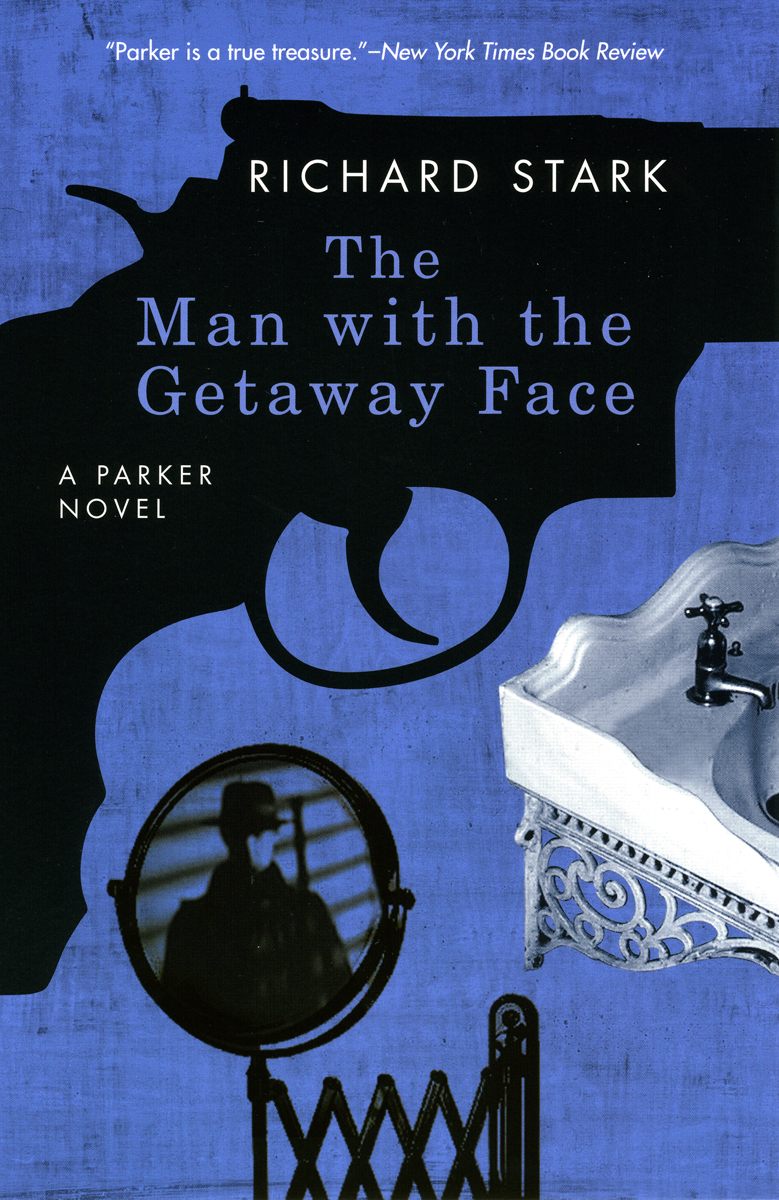 According to Amazon.com, this coming Monday is a day I’ve been waiting for a very long time. On that day (or thereabouts – Amazon isn’t always reliable about release dates) the first three novels by Richard Stark (aka Donald E. Westlake), about an ice-blooded thief named Parker, are being re-issued by the University of Chicago Press.
According to Amazon.com, this coming Monday is a day I’ve been waiting for a very long time. On that day (or thereabouts – Amazon isn’t always reliable about release dates) the first three novels by Richard Stark (aka Donald E. Westlake), about an ice-blooded thief named Parker, are being re-issued by the University of Chicago Press.Under his own name, Westlake is probably best known as a writer of light caper novels featuring Dortmunder, but among fans of the hard-boiled crime genre, Westlake, and Stark (and Parker) carry great we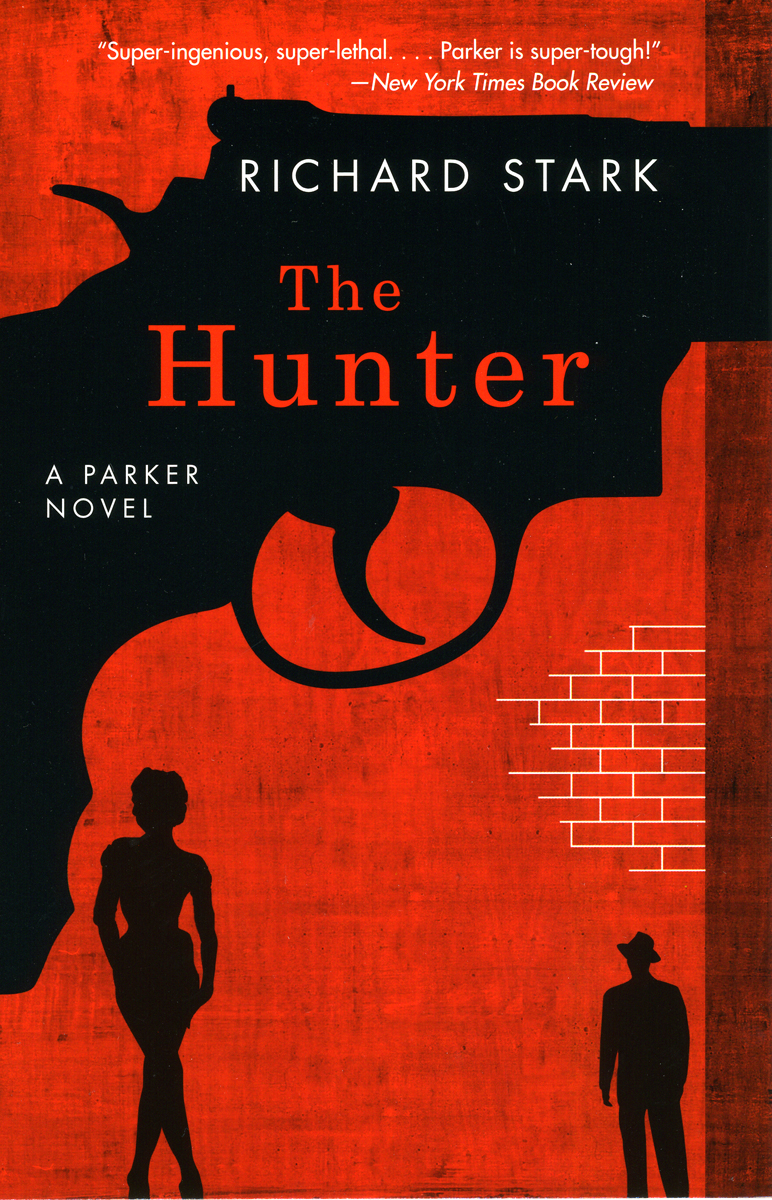 ight, and are rivaled in respect and acclaim perhaps only by Raymond Chandler. These books are crime fiction at its best, hardest, most pitiless and unsympathetic. Parker is a thief, professional and brutal. He's not the "one good thief", the kind of clever con-man you root for because he's smart and honorable in his own way, and besides everyone around him is far worse -- doing things like throwing old ladies at babies, distracting the police by setting fire to pandas, that sort of thing. No, Parker could probably be safely referred to as a scumbag, and you read these books because you know Westlake isn't going to blink. You know Westlake won't betray Parker.
ight, and are rivaled in respect and acclaim perhaps only by Raymond Chandler. These books are crime fiction at its best, hardest, most pitiless and unsympathetic. Parker is a thief, professional and brutal. He's not the "one good thief", the kind of clever con-man you root for because he's smart and honorable in his own way, and besides everyone around him is far worse -- doing things like throwing old ladies at babies, distracting the police by setting fire to pandas, that sort of thing. No, Parker could probably be safely referred to as a scumbag, and you read these books because you know Westlake isn't going to blink. You know Westlake won't betray Parker.
I look at this Monday as the day I can finally think of myself as a true connoisseur of the crime genre. I've been reading deep into the genre for many years, but I've always felt like a guy who walked around claiming to know more than a thing or two about a little writer you may have
 heard of by the name of Shakespeare, all the while concealing the shameful fact that I'd never read Hamlet (though I had seen those two movies they made from Hamlet, the ones starring Mel Gibson and Lee Marvin).
heard of by the name of Shakespeare, all the while concealing the shameful fact that I'd never read Hamlet (though I had seen those two movies they made from Hamlet, the ones starring Mel Gibson and Lee Marvin).Okay, yes, I could have read any of the five or six Parker novels I've been fortunate enough to stumble across over the years (like Butcher's Moon -- $75 on Amazon, last I checked, bought by me for a buck at a thrift store in Nag's Head, NC), and reading the books out of order is a practice that has even been sanctioned by Booker Prize-winning Irish author John Banville, who, incidentally, recommends starting with The Jugger. But while I'm currently reading John D. MacDonald's Travis McGee series out of order, and finding that in this case the practice seems to be working out fine, I could never bring myself to dive into the middle of the Parker books like that. These are, supposedly, the best the genre has to offer, after all. The experience has to be as pure as I can make it.
So mark your calendars. Or just put a note on your fridge that says "Monday: Stark books. Also buy meat". Or whatever else it is you need to buy that day, I don't know. I'm not you. But anyway...Westlake. Stark. Parker. Monday. 'Twill be a great day.
PS - This post was supposed to mainly be about lesser known crime novels and writers that I wanted to bring to everyone's attention (while possibly taking a few pot-shots at those writers I feel are wildly overrated, George P. Pelecanos!), and now look what happened? It all plum got away from me. So I guess I'll have something to write about tomorrow. Take that, bloggers who at this particular moment are fresh out of ideas!
Wednesday, September 10, 2008
From the Queue
The sheer variety of triple (or however many movies you get at a time) feature options afforded by the good, if occasionally frustrating, folks at Netflix is mind-boggling, and I try to plan them well. This grouping is a pretty good one, I think. Two genre films, one with a trashy reputation, one which has garnered far more respect, and another movie that is an established art-film classic. And they're all pretty short, too!
I have to confess that for a while I've harbored this minor fantasy that all of the wonderfully knowledgable and friendly bloggers I've met over the past year or so would start sharing their Netflix queues with each other -- you know, that whole "Friends" thing they have -- so we could all see what everybody else was up to. The point of this post is actually not to try and get anyone to do that, because I can see the downside to it, too. I mean, I don't think Jonathan or Dennis or Brian or Rick or Fox (especially not Fox), or even Marilyn, would regard me askance if they knew that I had, waiting in my queue, Ubalda, All Naked and Warm, but I do have a few films in there that I simply don't have the energy to try and explain to anyone. Frankly, it's none of your business. No, I will not share my queue with any of you people. Mind your own business!
But next week's triple feature...what do you think about The Company of Wolves, Air Force and Short Eyes? Or maybe Leaves from Satan's Book, The Emperor's Naked Army Marches On and The Real Andy Kaufman? Young Mr. Lincoln, My Favorite Year and Body Parts?
Well. That's enough randomness for one night. G'night!
Monday, September 8, 2008
Affinity 3

-Kingsley Amis
Saturday, September 6, 2008
Further Update
In the meantime...

Apologies to Chris Sims.
Wednesday, September 3, 2008
D'oh!
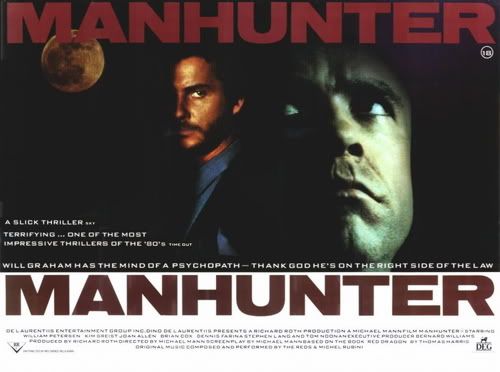
Or, should I say, It's Just You and Me Now, Sport.
Son of a bitch!


